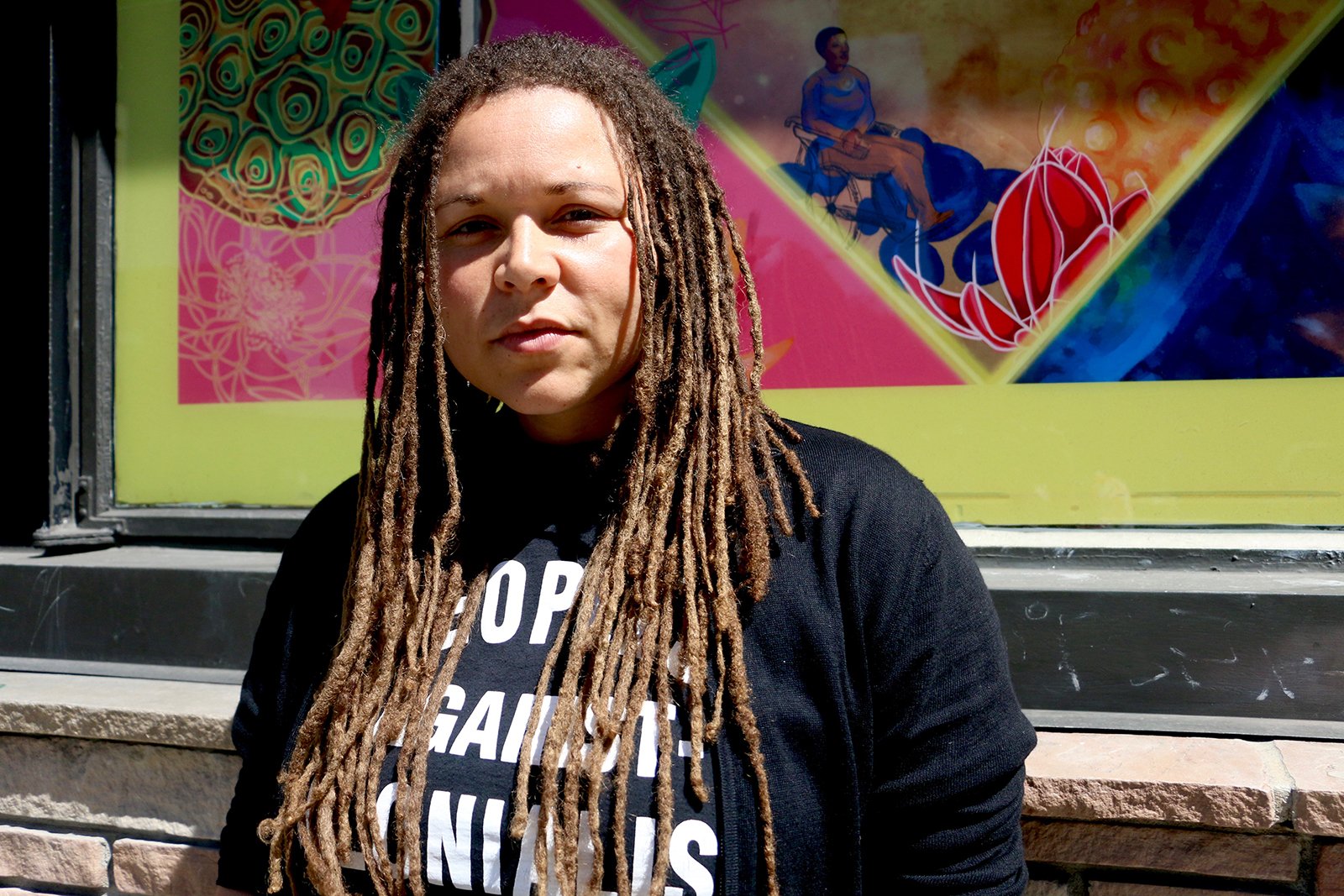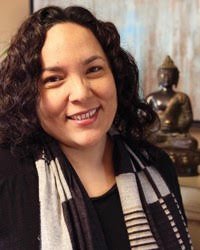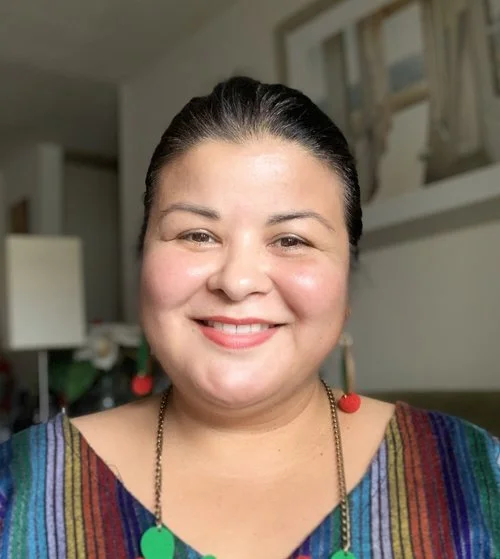
Calendar

Introduction to Cross-Cultural Mindfulness - October 2024
Introduction to Cross-Cultural Mindfulness
We are facing a time in humanity of great division and despair as we witness the unfolding of a dying ecosystem. We are experiencing the challenges of a world in crisis, pandemic, war, racial inequality, economic disparity, displacement, and climate devastation. We need a framework for building up ourselves and each other - together.
Cross-Cultural Mindfulness is a framework that brings together universal principles common across many cultures to help us integrate with our most primordial selves.
"Primordial comes from the Latin words primus, meaning 'first' and ordiri, 'to begin.' So it is easy to see that this adjective means 'first of all, original.' When something is primordial, it has existed since the earliest time, like the primordial mud some scientists believe was the source of all life on Earth."
This framework centers on the foundations of mindfulness that are grounded on the breath, body, heart, and mind. Cultures from all four corners of the world understand this framework to be fundamentally necessary to connect with our direct experience of the ever changing flow of life itself, which is essential to how we hold ourselves and each other in this very difficult time for humanity. In this course, participants will:
Cultivate stillness, deep listening, and the ability to pay attention to present moment experience with a quality of mind that is alert, open, aware, and fully alive.
Explore Earth-Based Practices to experience the truth that can be revealed through being in direct relationship with Nature.
Practice ways of tracking what is present for us, the visible and invisible.
Learn how to witness the mirroring of our internal and external realities through a self-assessment tool that explores how we are surviving and thriving.
Learn the distinction between Cross-Cultural Mindfulness and secular mindfulness.
Every time we practice mindfulness meditation, we are actively engaging with life itself internally and externally. Our internal landscape is a full living ecosystem no different from our beloved Earth, deeply connected to one another with no separation of other living beings, seen and unseen. Hence, this is why we honor the form and the formless as we acknowledge those who have come before us and after us. Our ancestors are living through us and the acknowledgement of our cultural roots is vital for a deeper understanding of our freedom beyond this body, this culture, this identity and this world. We open ourselves to this precious life shared with so many and embody the knowing that we are not separate from any of it. This practice is a vital antidote to the divisive patterns being amplified in our declining ecosystem worldwide.
Finally, as most know, the timeless practice of mindfulness was historically taught by the Buddha. The teachings of the Buddha belong to all living beings. At the same time, Asian descendants whose cultural and ancestral lineages have preserved Buddhism throughout history, have a particular birthright to Buddhism. Known as Heritage Buddhists, these Asian diaspora communities must navigate the complexities and intersectionalities of modern day Buddhism. Many must practice holding the tension of oppressive aspects of patriarchy and traditionalism in Buddhism while also the harms of racism, invisibility, erasure, and cultural appropriation perpetuated by white colonization. Cross-Cultural Mindfulness honors the contributions of Heritage Buddhists to the ongoing preservation and expansion of mindfulness and contemplative practices worldwide while making space for the evolving complexities and unfolding needs facing these specific practitioners.
ABout THE teachers
Carol Cano, M.A.
Lead Teacher
Carol Cano, M.A., began her practice over 35 years ago at Wat Kow Tahm in Thailand and has actively engaged in building communities and teaching Dharma internationally. She is a teacher at Spirit Rock Meditation Center. She is a core teacher and a former board member of East Bay Meditation Center. Carol co-founded Philippine Insight Meditation Community in the Philippines.
Her unique teachings are deeply grounded in Basque, Native American and Buddhist influences that braid the Dharma along with Indigenous wisdom and earth-based practices. Her psychology background gives her a unique view into the human condition, which helps her hold community in a compassionate and confident manner. Carol reminds us to keep grounded in our hearts as we uphold spiritual ideals and encourages us to remain balanced within the demands of modern life. To find out more about Carol, please visit www.carolcano.com.
Imee Contreras
Co-Teacher
Imee Contreras, CMT-P, is the founder of Mindfulness Asia. She is co-founder of the Philippine Insight Meditation Community and Nibbāna Forest Refuge. She is a mentor for Jack Kornfield and Tara Brach's Mindfulness Teacher Training Certification Program, where she co-facilitates the Third Space in the Diversity, Equity, Inclusivity, and Accessibility Program. She is the Mindfulness Teacher of Braided Wisdom's Leadership Training Program and a Co-Teacher for the Original Medicine Yearlong Program.
She develops and facilitates innovative mindfulness programs for international companies, schools, and events. She volunteers to teach incarcerated women serving life imprisonment and supports sexually abused women and children.
She spent a large part of her younger years growing up in the United States and is now based in her motherland, the Philippines. She is mixed-race, adopted, and raised by hard-working, lower-middle-class, immigrant Filipinos. She is a mother, an organic gardener, a health and wellness advocate, and a yoga therapist.
Dr. Pawan Bareja
Guest Teacher
Pawan Bareja, PhD has practiced Vipassana meditation since 2001. She is a graduate of the Spirit Rock Teacher Training, a Buddhist Ritual Minister and a Community Dharma Leader at Spirit Rock. She has taught classes and daylongs on healing trauma using mindfulness at Spirit Rock, San Francisco Insight, EBMC, and Esalen. In her private practice as Trauma Resolution Practitioner, Pawan works with a diverse population of clients and teaches mindfulness meditation. For the past 18 years, Pawan has been a senior assistant at Somatic Experiencing trauma healing trainings and has traveled to India to teach this work to professional care providers.
Carmen Alvarez
Teacher’s Assistant
Carmen is from the Purepecha lands in Michoacan Mexico. Carmen has a master’s degree in Leadership which she has braided beautifully with her Toltec, Purepecha, and her Mindfulness Training Practices providing holistic approaches to healing and personal development. She received her Certification as a Mindfulness Teacher from the Braided Wisdom Leadership Training Program in 2022. She also has completed two Indigenous Master programs, Nahualismo and Curanderismo. Carmen is a practitioner of Mexica indigenous practices and she is also part of a Lakota centered community.
Coaching and training are her passion as she thrives when working with others. Her belief is that we must heal ourselves and by doing so we heal our family, our ancestors, and our communities. Carmen practices and guides mindfulness meditations, leadership coaching, ancestral healing, trauma-based healing, limpias, manifestations, planting dreams, among many other healing techniques. Her intention is for everyone to find their passion and live their best life.
R. Consuelo Inez
Teacher’s Assistant
Inez is an indigenous energy medicine-woman, certified in international mindfulness meditation, sound healing, acupressure, ayurvedic and healing touch therapies. She is a trained herbal medicine practitioner, and hypnotherapy guide. Aware of her intuitive abilities at a very young age her life purpose was revealed to her through elements of nature and the spirit of dreams. She unites traditional indigenous philosophies, evoking ancient shamanic sounds of the ancestors through Native American drumming, Tibetan bowls, and voice while integrating the science of music therapy.
Inez has a private practice in Northern California offering energy medicine to clients opening pathways for spiritual awakening to help alleviate and release emotional trauma, spiritual, and physical burdens, while restoring soul integrity.

Ubuntu & Brahma Viharas with Nobantu Mpotulo
Ubuntu and Brahma Viharas: Weaving Ancient African Spirituality and Buddhism
This program shares the age-old African Wisdom of Ubuntu. Ubuntu is about inter-connectedness and inter-beingness. This helps us to connect deeply with ourselves, with others, and with Mother Nature. Ubuntu promotes non-duality and uses the heart and the body to connect with all beings seen and unseen. We will explore how to use Ubuntu to bring the Brahma Viharas alive.
Nobantu Mpotulo has been a Buddhist practitioner and a teacher for over 20 years. She is trained in the insight mindfulness practices. She is also an Insight Dialogue Teacher and integrates Insight Dialogue with Ubuntu an ancient African Indigenous Wisdom which emphasizes interdependence and non-duality. Nobantu is also a Diamond Approach student and in her practice of Diamond Approach she uses Enneagram to support her. She is a certified Enneagram Teacher. Nobantu is a graduate of the Community Dharma Leadership Programme (CDL 4 Cohort), she has also completed the Dharmapala Programme under the tutelage of Kittisaro and Thanissara. She is a Trustee at Dharmagiri. Nobantu promotes Afro-dharma in her Buddhist teachings by integrating Ubuntu. Nobantu is an internationally acclaimed coach, mentor, facilitator and leads peace circles.
Her favorite quote is by Victor Frankl,
"Between stimulus and response there is a space. In that space is our power to choose our response. In our response lies our growth and freedom."

Restorative Economy Series With Guest Speaker Melissa Crosby
About the Discussion
In this talk, we hear the great wisdom of Melissa Crosby, also known as Crosby, who currently serves as co-director and collective member of Movement Generation. Crosby gives an igniting talk that brings together social justice and political economics. They talk about the second iteration of the Just Transition movement and the effort to address the destructive impacts of the extractive and exploitive economy. They share a compelling perspective on the maturation cycle of our human species, how not all humans have had the same impact on the world, and where we are right now in this cycle. Lastly, we hear about what ecological justice is and how we can shift to a new regenerative economy through building, beloved community, centered on sacred care, greater unity, and cooperation. Learn more about Crosby here.
Additional Resources:

Restorative Economy Series With Guest Speaker Konda Mason
About the Discussion
We launch the Restorative Economy series with guest speaker Konda Mason. Konda is a social entrepreneur, eco-spiritual thought leader, mindfulness teacher and justice advocate. In this conversation, Konda digs into the problem of our existing economy, helps us reimagine a new way, and describes the path forward using evolving frameworks based in solidarity and restorative justice. Learn more about Konda Mason here.
Additional Resources






